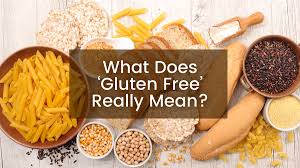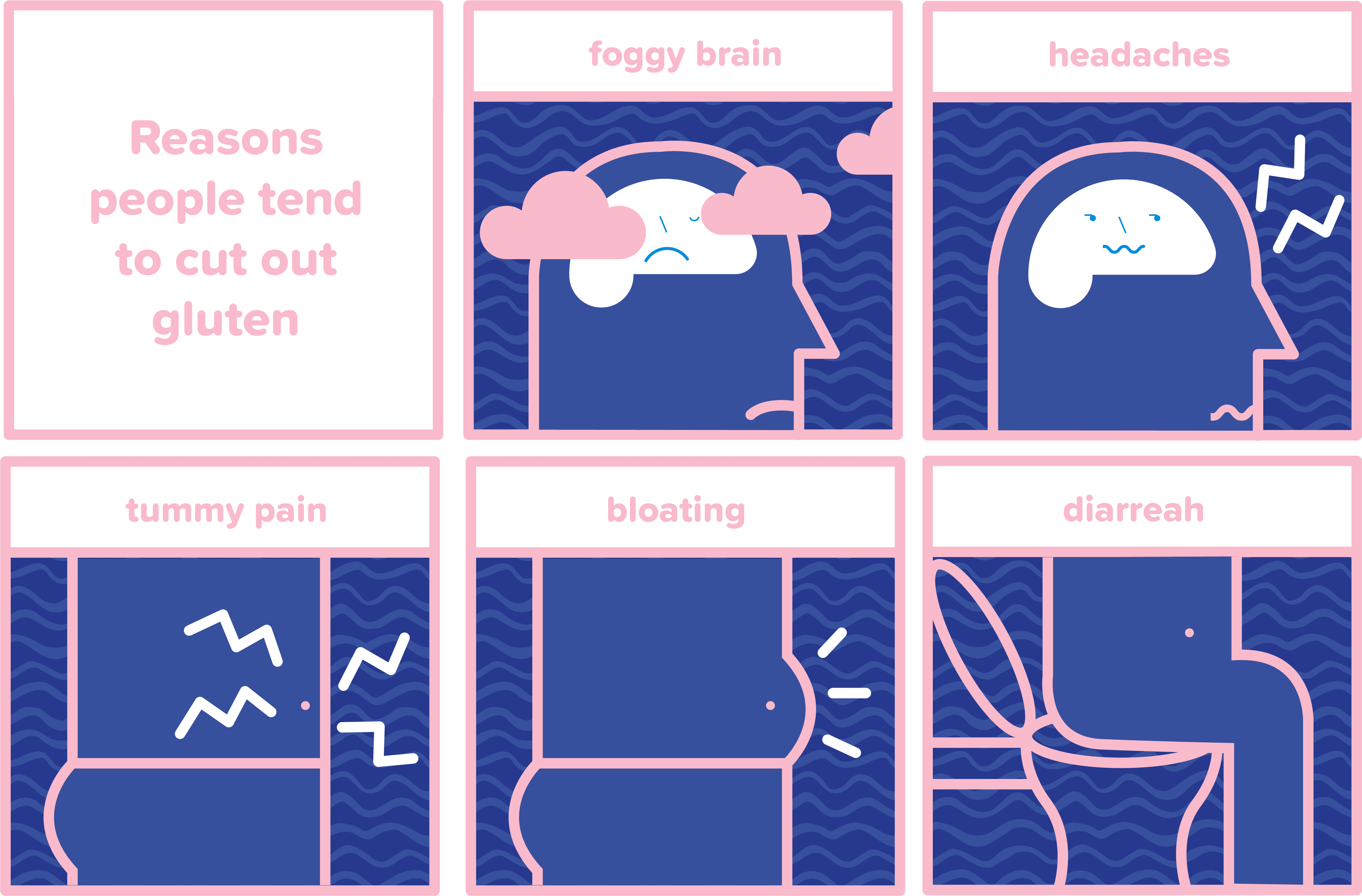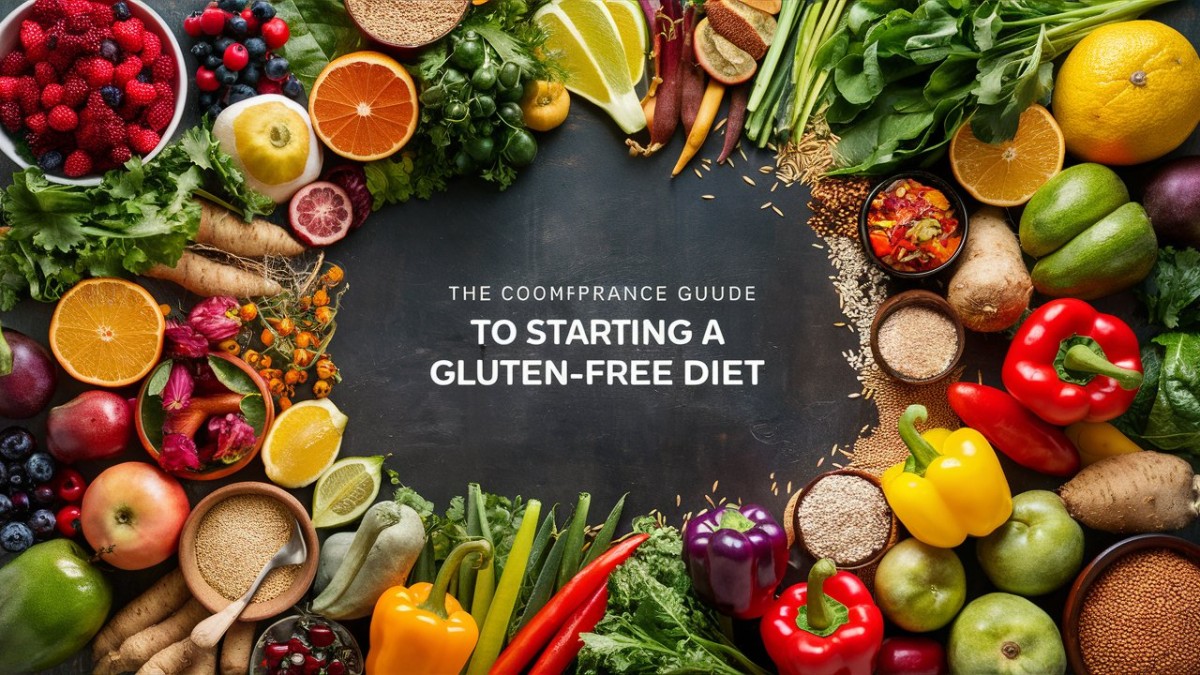Do you want to explore everything regarding a gluten-free diet?
You are at the right place.
In this blog, we will be explaining everything regarding the gluten-free diet, which can help you as an instruction guide if you are thinking of starting following a gluten-free diet. First, let's start with the basics,
What is a gluten-free diet?
To understand the definition of gluten gluten-free diet first you need to understand what is gluten, it is a protein that is found in wheat, rye, barley, and triticale which is a cross between wheat and rye. “A gluten-free diet is the eating plan that excludes all the foods that contain gluten.” Gluten is used as a binder in many foods to add structure and texture.
Why you should follow a gluten-free diet?
 A gluten-free diet can be followed by people who have gluten sensitivity, gluten-associated health issues, and people who want to follow a healthy lifestyle. While gluten is being used in most foods it can act as a triggering point for individuals with celiac disease by damaging the small intestine. So here is why you should follow a gluten-free diet:
A gluten-free diet can be followed by people who have gluten sensitivity, gluten-associated health issues, and people who want to follow a healthy lifestyle. While gluten is being used in most foods it can act as a triggering point for individuals with celiac disease by damaging the small intestine. So here is why you should follow a gluten-free diet:
Celiac disease
As mentioned before gluten-free diet should be followed by people with celiac disease because gluten triggers the activity of the immune system by damaging the lining of the small intestine. This is an autoimmune disorder that does not allow the absorption of nutrients from food. So to manage the condition of celiac disease gluten-free diet can be best suitable.
Gluten ataxia
The next condition that needs the help of a gluten-free diet is gluten ataxia which is also an autoimmune problem affecting the nerve tissues and muscle control problems.
Non-celiac gluten sensitivity
This is a condition that has no complete research but this non-celiac gluten sensitivity has some similar symptoms as celiac disease such as bloating, diarrhea, constipation, and abdominal pain. Along with this headache is also experienced without being the issue present in the small intestine. You can follow a gluten-free diet to keep yourself free from non-celiac gluten sensitivity.
Wheat allergy
Many people have certain allergies to different foods, likewise, few people have wheat allergies that can be due to gluten intolerance or the immune system finds gluten or any other substance present in gluten as a cause of diseases.
What are the benefits of following a gluten-free diet?
 1)The first benefit of following a gluten-free diet is that you can manage conditions such as celiac disease, gluten sensitivity, and gluten ataxia.
1)The first benefit of following a gluten-free diet is that you can manage conditions such as celiac disease, gluten sensitivity, and gluten ataxia.
2)You can improve your digestive health by including gluten-free foods in your diet by reducing symptoms such as bloating, diarrhea, and abdominal pain.
3)Also a few people reported losing weight after following a gluten-free diet as you include all the healthy foods by avoiding processed foods.
4)Your overall health can also be improved by following a gluten-free diet.
5)Your gastrointestinal health and athletic performance are also known to increase by following a gluten-free diet.
What are the foods to include and avoid in a gluten-free diet?
Whenever we think of following a following diet plan there will be certain foods to include and avoid. In a gluten-free diet, you need to avoid foods containing gluten such as wheat, barley, rye, and triticale and its additives in nuts, seeds, fruits, vegetables, meat, fish, and dairy. You can include fresh forms of those foods but avoid any additive of gluten present in them.
Category |
Include |
Avoid |
|
Grains |
Rice, quinoa, millet, corn, sorghum, buckwheat, gluten-free oats |
Wheat (including spelt farro, and durum), barley, rye, triticale |
|
Snacks |
Regular crackers, pretzels, some chips |
|
|
Pasta |
Wheat pasta |
|
|
Beverages |
Water, 100% fruit juice, coffee, tea |
Beer (unless labeled gluten-free), malt beverages |
The best way to find gluten-free foods is to read the food label and observe the lines gluten-free lines such as the food that does not contain gluten ingredients, and these foods are not cross-contaminated with gluten ingredients during the production process, and then gluten ingredients are removed by processing.
Are there any side effects of following a gluten-free diet?
As you are avoiding gluten-rich foods that are a rich source of essential minerals and other nutrients like calcium, iron, vitamin b12, fiber, niacin, folate, and thiamine, certain deficiencies can be experienced. Consult with a dietician who can guide you through gluten-free, vitamin-rich foods.
Along with nutritional deficiencies, you can also experience constipation problems as you avoid a few fiber-rich options. So if you experience a constipation problem try to include foods such as berries, lentils, beans, broccoli, and Brussels sprouts for relief of constipation.
Read more on diet
End note:
A gluten-free diet can be best helpful for people fighting gluten-related health issues. Along with them people who want to improve their overall health can also follow a gluten-free diet and have a healthy life.
